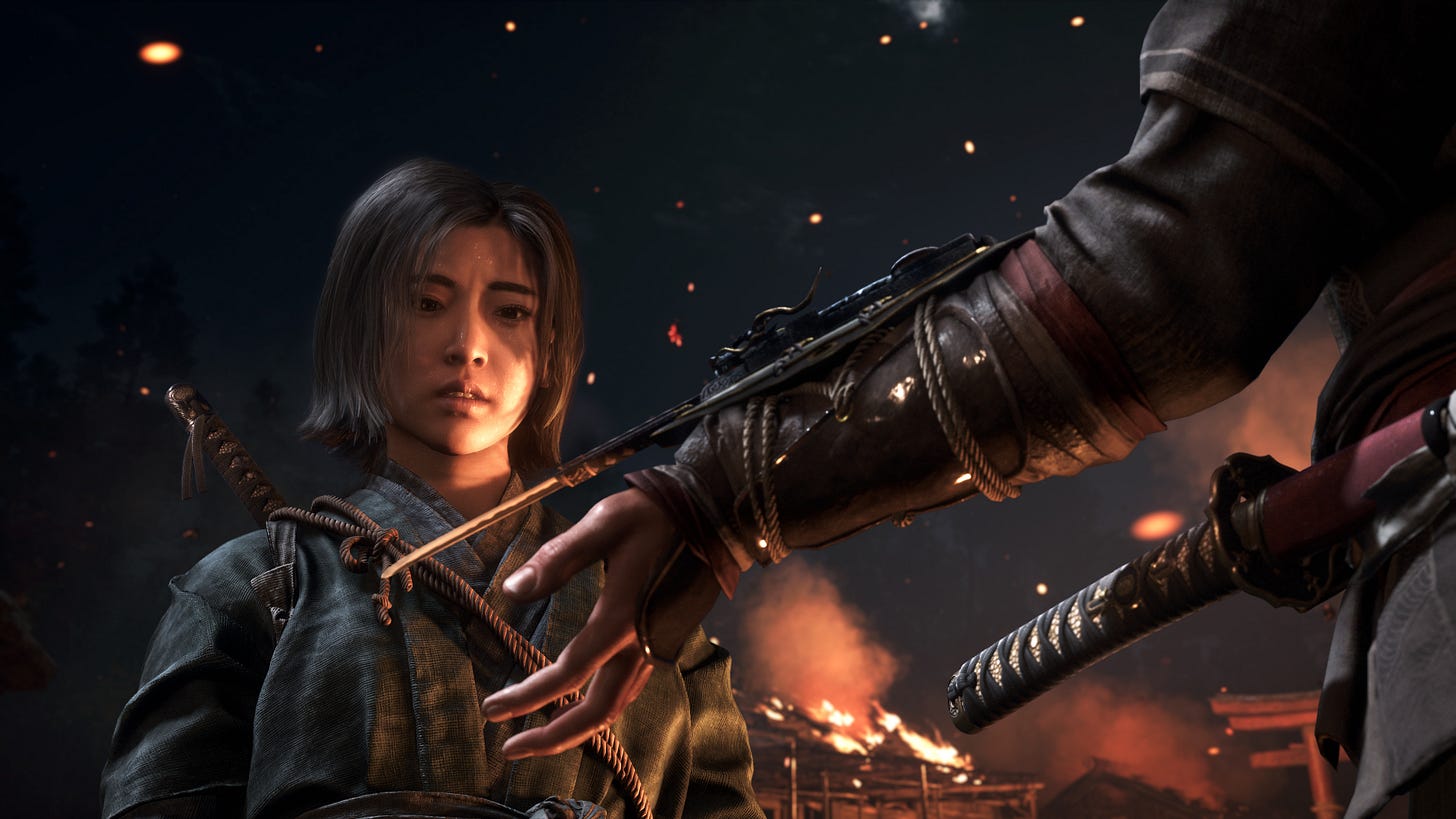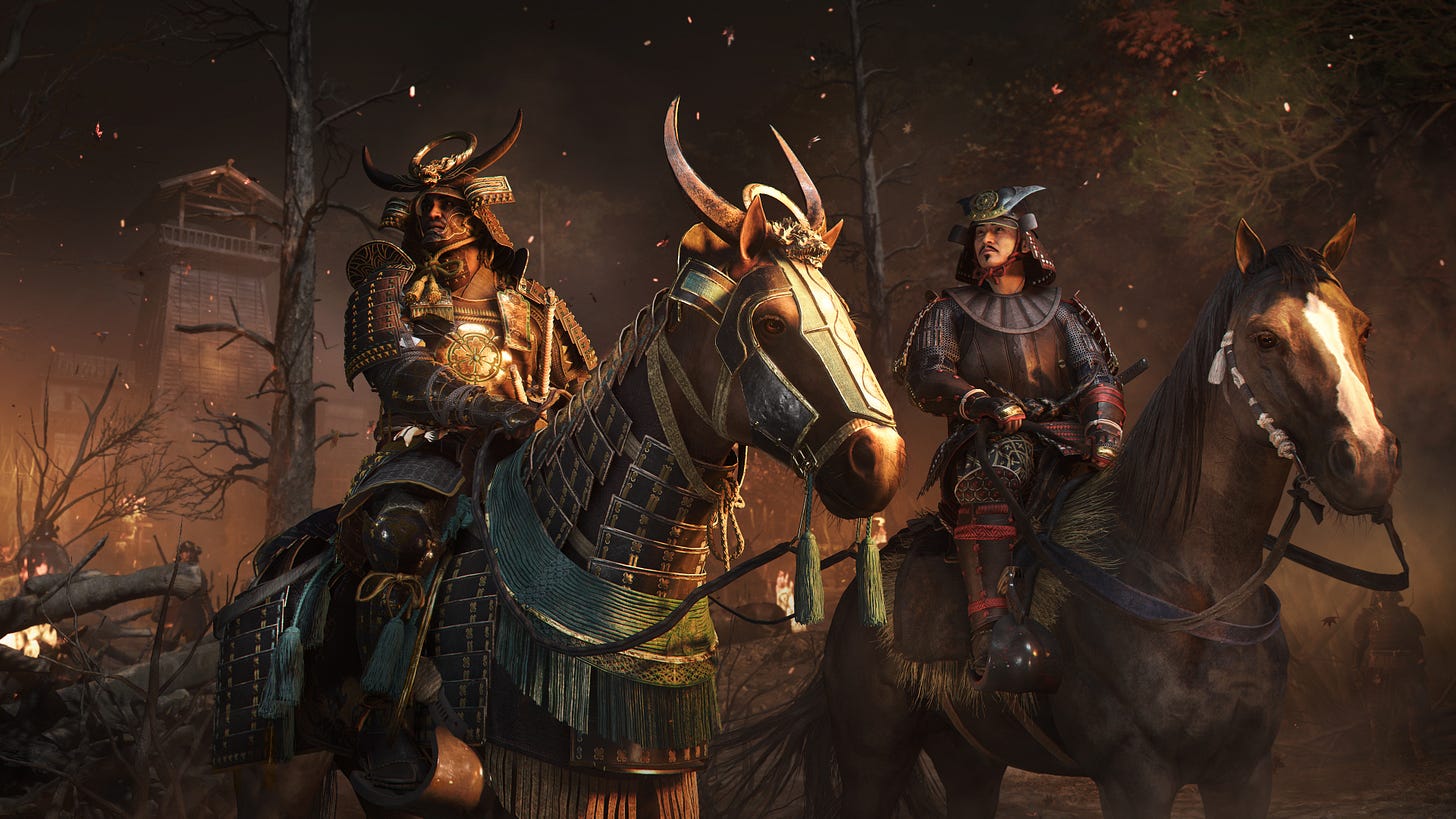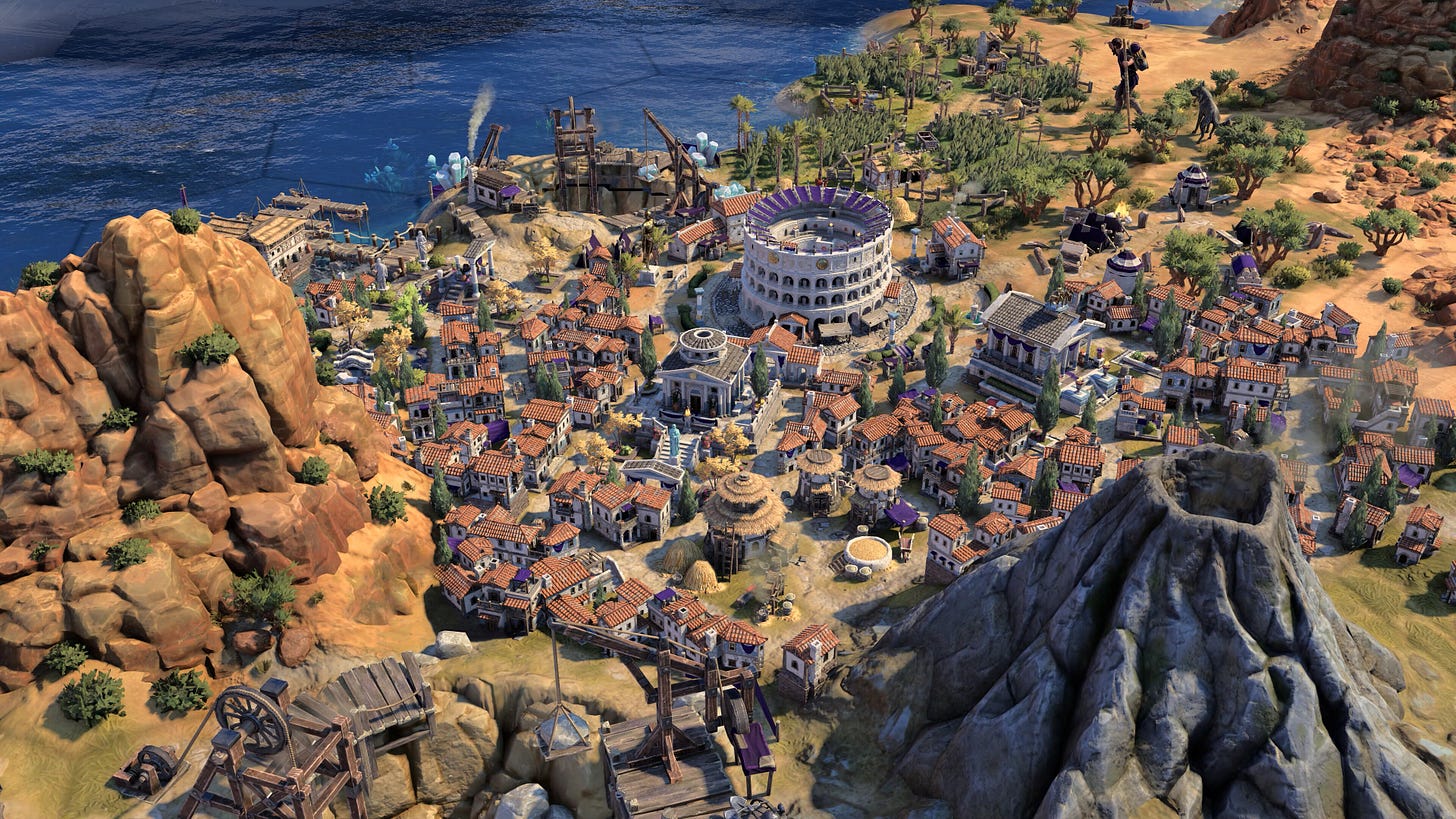Assassin's Creed Shadows, Civilization 7, and Marvel Snap creator Ben Brode
Two big previews, one timely interview, and a board games roundtable!
Between Trump’s second inauguration, a 40-minute 1A board game segment I joined, and a bevy of high-profile previews I’m finally off embargo for, the news cycle gave me quite a spin this week. I’ll dole out my Civilization 7 and Assassin’s Creed Shadows impressions, but first, some surprising news I reported Tuesday:
Marvel Snap is back.
An unexpected casualty of the TikTok ban, the popular digital card game went dark Saturday night, as I discovered when attempting to sign on while brushing my teeth. I tapped the app, as I do every day, only to find the launch screen emblazoned with these words:
“A law banning MARVEL SNAP has been enacted in the U.S. Unfortunately, that means you can’t use MARVEL SNAP for now.“
TikTok owner ByteDance — which publishes Marvel Snap through subsidiary Nuverse — didn’t inform the game’s developer of the move. By Sunday morning, the error message had changed to say Marvel Snap was “temporarily unavailable.” The game was finally restored late Monday.
Marvel Snap creator Ben Brode discussed the bewildering outage in an emailed response through a public relations representative. “We immediately went all hands on deck,” he said. “Together with Nuverse, we worked to identify what was happening and come up with plans to reverse the outage and make sure it wouldn’t happen again going forward.”
Brode also explained that Marvel Snap would change its publishing arrangement. “We’ve reached an agreement with Nuverse to bring many publishing responsibilities in-house and to transfer publishing rights to a new publisher to ensure that Marvel Snap remains accessible for everyone, forever.”
Brode ended on a characteristically enthusiastic note: “We’re excited to share more with our community, and can’t wait until we can reveal more information about what’s next,” he said. “In the meantime, we’re opening a ton of new job openings to supercharge our self-publishing capabilities.”
Days before the surprise ban, I interviewed Brode about the future of Marvel Snap and how he hopes to court users that may have cooled on the game since its acclaimed 2022 debut.
You can read the edited transcript here. We discussed the possibility of Draft coming to Marvel Snap, the onboarding challenges the game faces, and some of the criticisms levied at its business model.
Assassin’s Creed Shadows
Ubisoft invited me to play nearly four hours of Assassin’s Creed Shadows. I cruised through the introductory section, which sets up separate storylines for Yasuke and Naoe, before being ushered to a later save file, after the two protagonists have teamed up to take down a shadowy cabal in 16th century Japan.
This preview earned my wary respect. The game immediately clicked for me, unlike Assassin’s Creed Mirage — perhaps because I’m more familiar with Yasuke’s Sekiro-style parries and Dark Souls dodges than Naoe’s parkour and stealth.
You can’t swap between characters when you’re in story missions or when you’ve alerted foes, so you’ll have to carefully weigh your approach before each objective. Extract a drunk from a hostile bar? Surely a job for the sneaky shinobi, Naoe. Meet a contact that’ll almost certainly betray you? Tank up as the samurai, Yasuke.
At times I miscalculated to hilarious results. I steered Yasuke into an estate crawling with enemies, crashed through a paper screen, backstabbed the first man I saw, who happened to be right next to the NPC I needed to talk to and who acted like she hadn’t just seen me perform a brutal murder. I then managed to slip away but could barely clear the surrounding walls in my heavy armor. As I stumbled out with none (miraculously) the wiser, I had the sinking feeling that Naoe’s better suited for most missions.
Yasuke simply can’t prance about like typical Assassin’s Creed heroes. I once fast-travelled to a towering rooftop I unlocked with Naoe’s acrobatics. When I pushed Yasuke off the roof toward one of the classic haycarts, he didn’t take the trademark swan-dive to safety. Instead he yelped and thudded to the ground. The hay still blunted his fall, but the moment deftly illustrated his comparative oafishness, for all his quiet gravitas.
Shadows still wants to present Yasuke and Naoe as equally viable. I started the final story mission as Naoe — the climax of a plotline that had me investigating a city and its surrounding environs. I rather clumsily assassinated three targets, then hit dialogue scenes and the option to switch to Yasuke. I rushed a castle as the samurai, slaying its defenders until I climbed to the top floor, where another scene offered a switch. Sensing a swordfight, I kept to Yasuke and handedly won the day.
While it occasionally sparkles, I’ll need more convincing to embrace the dual-protagonist structure. I suspect it’s designed to cater to a broader swath of action gamers while scrupulously maintaining the stealth that series diehards demand. In that sense, I can understand why Ubisoft’s kept delaying Shadows — it’s essentially two overlapping games in one. Even if they pull this ambitious feat off, it still might not be enough to save the studio when the game finally releases March 20.
Civilization 7
I’m less conflicted about Civilization 7, which debuts February 11. First on my ASUS ROG Ally and then on my Steam Deck, I’ve spent hours upon hours raising settlements from obscurity while racing to complete Wonders and stave off foreign aggressors.
Civilization has always been a huge history soup, but this latest version makes it more of a layer-cake. You’ll have one leader (ranging from Xerxes to Lafayette to Harriet Tubman) who will guide your civilization as it morphs from age to age. I started one game as Napoleon, overseeing a thriving Egypt. I maxed out my Cultural and Economic ambitions, while skimping on the Scientific and Military tracks. When the Antiquity Age yielded to the Exploration Age, the game rewarded me with a choice of upgrades to match my cultural and economic focus.
I also had to change Civilizations — opting for the Majahapit, a maritime empire once based around real-world Java. My neighbors swapped civs too, but we kept our leaders and our general attitudes toward each other. With far-off territory to discover and different mechanics to manage, the Exploration Age almost felt like a whole new game.
Other changes streamline the experience. Taking a page from my beloved Endless Legend (which just announced a sequel, by the way), Civilization 7 abstracts most systems into currencies. Invest diplomacy points to woo allies or independent city-states, which replace the game’s traditional “barbarians.” Generate science to unlock technologies and culture to climb up a separate civic tech-tree. Production accumulates turn by turn to build improvements and units at cities — but not at towns. These lower-tier settlements instead mint coin for your empire, which you can spend to buy buildings or units outright.
I’ll also note that the game works well on a controller until about halfway through Antiquity. I’d be much happier managing trade routes and missionaries with a keyboard and mouse, but I’m on doctor’s orders to keep my leg elevated and therefore can’t easily use my desktop. But despite the tedium, Civilization 7 felt fresh and promising; as accessible as the series gets, but with enough sharp new hooks to keep me intrigued.
As a parting shot, I’ll shout out All Things Considered’s interview with Stardew Valley auteur Eric Barone. I’ll also reiterate that I was on 1A this week! I joined designers Tory Brown and Eric Slauson to talk about modern board games with guest host Elliot Williams. My only regret is that in my haste to answer the first question about trends in the industry, I completely forgot my plan to discuss Daybreak and Earthborne Rangers as examples of climate-conscious board games. Alas!








